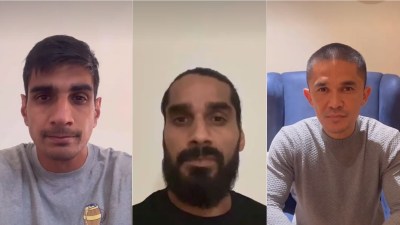One answer to 5 tricky questions
The apex court said in 8216;Peria Karuppan8217;: 8216;reservation of seats should not be allowed to become a vested interest8217;

The on-going controversy over OBC reservations raises some important questions: is reservation on the basis of the decades old OBC list really in favour of socially and educationally backward classes? Is reservation at the post-graduate level justified? Is reservation in favour of OBCs in private unaided educational institutions established by non-minorities violative of equality? Does the 93rd amendment make it mandatory to provide such reservation? Is the unanimity among political parties on the issue the equivalent of the constitutionality of the proposal?
In my humble opinion, after an in-depth study of the provisions of the Constitution and various Supreme Court judgments, the answers to all the five questions have to be in the negative. Equality of all citizens is the founding faith of our Constitution as enshrined in its Preamble. It also constitutes one of the elements of the basic structure of the Constitution which cannot be amended.
However, given the existence of inequality among the citizens, an enabling provision was inserted in Clause 4 of Article 15, which conferred power on the state to make special provision for the advancement of socially and educationally backward classes not castes of citizens or for Scheduled Castes and Tribes.
Accordingly, provisions for reservation was made in professional colleges for over 50 years. Now that a substantial number of persons who belonged to OBCs have made tremendous progress thanks to these and other measures, they should not be considered as belonging to the backward classes any longer. In this context it is appropriate to quote what the Supreme Court had said in Peria Karuppan as early as in 1971: 8220;Government should not proceed on the basis that once a class is considered as a backward class it should continue to be backward class for all times8230;Reservation of seats should not be allowed to become a vested interest8221;. Once this elimination is achieved, the percentage of reservation would also have to be proportionately reduced. Without doing so, extending the benefit to the same list now and to the same extent is unconstitutional.
Regarding the second question, in Dr Preeti Srivastava 1999, a constitution bench of the Supreme Court held that at the level of super-speciality courses, no reservation is permissible since it is contrary to national interest. As regards reservation at the post-graduate level, the question was left open. However, the reasons given for holding that there shall be no reservation for super-speciality courses apply with equal force to post-graduate courses. The Supreme Court has held in Indra Sawhney that once a person gets selected to a cadre by direct recruitment on the basis of reservation, he belongs to one class along with others directly recruited in open competition, and a second level reservation thereafter for promotion is not valid. This principle holds good for reservation in post-graduate courses also. After a candidate secures admission to a degree course by reservation, all the students so admitted belong to one class. Therefore selection to higher courses should be according to merit obtained in the degree course.
As far as the last question is concerned, clause 5, which was inserted into Article 15 by the 93rd amendment, enables the state to provide quotas for backward classes in private unaided professional colleges established by non-minorities is ex-facie discriminatory in violation of the law laid down by 11-judge bench decision in T.M.A. Pai. Secondly, it is also discriminatory towards backward classes as they are deprived of securing reservation in minority colleges.
Now for the question: is it correct to say that the 93rd amendment makes introducing OBC quotas in higher professional courses mandatory? It certainly is not. The constitution bench of the Supreme Court, as early as in 1963, in M.R. Balaji held that Article 154 is only an enabling provision and that it does not impose an obligation to provide for reservation. The same holds good for the 93rd amendment.
Finally, the question: is the unanimity among all political parties in this issue proof of the constitutionality of this step? Again, it is not. Such unanimity only indicates that no political party wants to oppose it for electoral considerations.
Having said this, let me also state that any reasonable reservation made with due regard to the provisions of the Constitution and Supreme Court judgments would be acceptable and in the national interest.
The writer is a former chief justice of Punjab and Haryana High Court and former governor of Jharkhand 038; Bihareditorexpressindia.com
- 01
- 02
- 03
- 04
- 05































